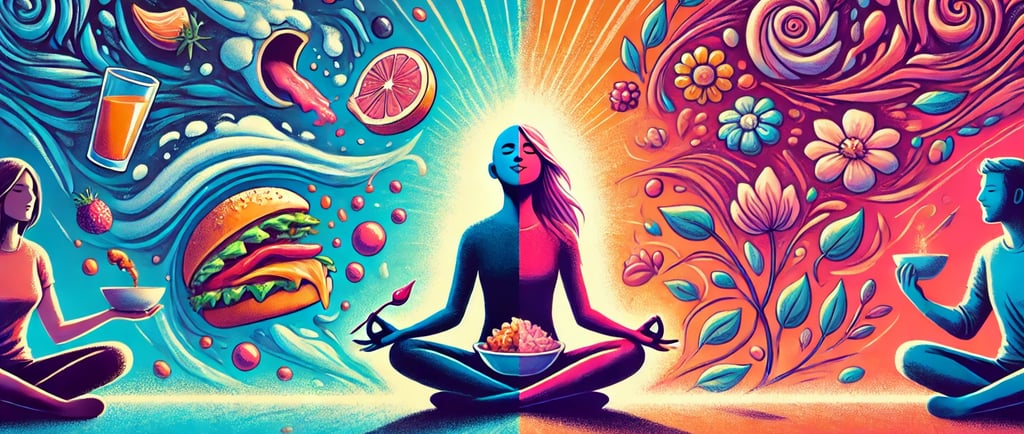Happiness please, not pleasure: A neuroscientific viewpoint
Happiness is not the same as pleasure. Neuroscience provides clear evidence that helps us distinguish between these two key concepts in our lives, and explains why we should prioritize happiness over pleasure.
7/7/20242 min lesen


The big confusion
The purpose of life is to be happy, according to the Dalai Lama. Aristotle also stated that happiness is the meaning and purpose of life, the whole aim and end of human existence. While these philosophical statements cannot be empirically proven, most people would agree that they seek happiness in life.
Despite the fact that ancient Greeks already distinguished between pleasure (hedonia) and happiness (eudaimonia), many people today still do not understand the difference. If happiness is what we seek, we must first be able to define it. Here’s a scientific approach to defining happiness.
A neuroscience definition
What is happiness? Surprisingly, there is no common ground regarding the definition. Different disciplines such as psychology or neurology have different understandings. The common ground seems to be that happiness is first and foremost a feeling. Neurobiological, it can make sense to distinguish between happiness and pleasure. Modern brain research confirms that there is a big difference between happiness and pleasure. Pleasure is always something fleeting. An area of the brain is activated in which mainly the neurotransmitters dopamine and adrenaline are released. This creates a firework, but it burns off quickly. Happiness is something completely different. Happiness arises when our needs are largely satisfied over the long term. Slow-acting reward substances such as endorphin and serotonin are released. While a pleasure state is only a snapshot, happiness lasts for the long term and creates an inner satisfaction.
The source of positive feelings is also crucial for neurobiology. Material rewards such as money or sex primarily activate the nucleus accumbens at the center of the so-called reward system. This feeling of pleasure is short-lived and quickly leads to demand for more. Social rewards, such as recognition and friendship, have a longer effect. They activate areas of the cerebral cortex such as the orbitofrontal and insular cortex, in which positive and negative experiences are processed on a conscious level. The most lasting feelings of happiness arise from activities in which we are completely absorbed. When things are going like clockwork - psychologists and neurologists speak of the flow experience - the basal ganglia come into play. They are the storage location for all automatisms and ensure that the brain's own opioids flow in abundance when we do things "skillfully".
What we really want
So much for the definition of happiness and it's neurobiological basis. You can already see that the real thing to live a good life is not pleasure, it's happiness. We always need to come back for more. It is never enough. And at some point down the road, we feel exhausted and stressed from this endless habit of finding pleasure in the outside world. Happiness lasts. And it goes beyond being a feeling. It’s a superpower. Read my next blog post here about the phenomenal side effects of being in a positive state of mind.
© 2025. All rights reserved.
Büro im Herzen von Zürich
Kontaktformular
Therapy Central
Limmatquai 138, 8001 Zurich
